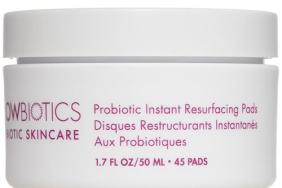theFashionSpot: Why do you think superfoods have become such a popular skincare ingredient?
Dr. Verallo-Rowell: Because there are now many more research studies done at the molecular, genetic and translational level of the skin in diseased as well as in the normal state. These kinds of studies have also spilled over into nutrition and their real effects on the skin. By extension, extracts directly taken from these superfoods studied are finding their way also as ingredients in cosmetics and skincare products. Coconuts, nuts and turmeric being my favorites. That said, just including antioxidant or “superfood” ingredients in skincare does not mean they will have the desired, or any, effect. Many of these ingredients do not survive even basic processing to remove them from the source, so by the time they are used in a formulation, they have lost most of their benefits or potency. Some may not be stable in a formulation. Others might have molecules too large to be effective and others can be allergens. Strawberries, for example, are excellent antioxidant powerhouses, but are well-known allergens.
tFS: When shopping for these products, what should we be looking for?
VR: Look for the following:
- Simplicity in processing.
- Naturally stable and not needing preservation or very little of it.
- Non-allergen. Many natural, organic substances are allergens.
tFS: Is natural/organic necessarily better?
VR: I prefer organic always when available because these are free of additional chemicals that are alien to the body. The body may not have the right enzymes to metabolize and detoxify those additional chemicals. Organic materials are better known by one’s endogenous enzymes, hence there is no accumulation of these chemicals in the body. Remember, however, that natural/organic may not be better in skincare in terms of efficacy. Make sure there are published, evidence-based trials to determine efficacy. Natural/organic can also be more allergenic. It is a common misconception that natural or organic ingredients are better for sensitive skin. Lemon, lime, lavender, ylang-ylang, fragrance oils from flowers are all examples of allergens that, regardless of how natural or organic they are, should be avoided if you are sensitive to them.
tFS: What superfoods are the best and why?
VR: Coconuts are number one! In skincare, coconut oil is very stable and many of its good properties benefit the skin. Its fatty acids are native to skin, which helps it provide better moisturization and barrier repair. It is a natural antimicrobial, which is important for skin prone to infection or microbial contamination like those with eczema. It has anti-aging properties in its growth hormones. There are no reports of allergic reactions to it (there are to less pure oils, so stick to real, pure virgin coconut oil) and it is noncomedogenic.
tFS: Can you elaborate on any other favorites?
VR: Turmeric. There are lots of studies on turmeric’s antioxidant and anti-inflammatory effects. And it is effective eaten or applied on the skin.
tFS: There are obviously some marketing gimmicks with these kinds of things. What should we make sure to avoid?
VR: Choose a product manufacturer with a solid reputation for efficacy — usually this means they do evidence-based clinical studies (randomized, double-blind) and ideally, their studies have been published in peer-reviewed medical journals. Also avoid products that smell good or “like nothing” as there may be a masking fragrance added. Fragrance is a top allergen. If you have very sensitive skin, you actually might want to avoid claims of natural or organic, unless you’re sure the ingredients are not allergens (like coconut oil or coconut-derived monolaurin). Common allergens that are natural include ylang-ylang, fragrances, tea tree oil, vitamin E, lavender and citruses. For coconut oil, choose pure (no additives) and extracted manually and cold (no heat, no chemicals to process, which can also be allergenic).








